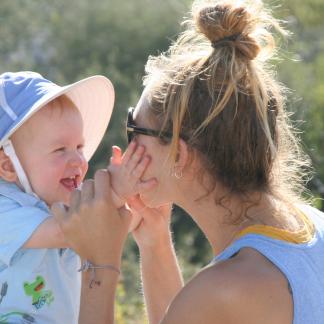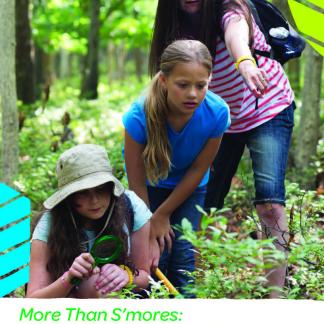Member Spotlight
Nature Niños
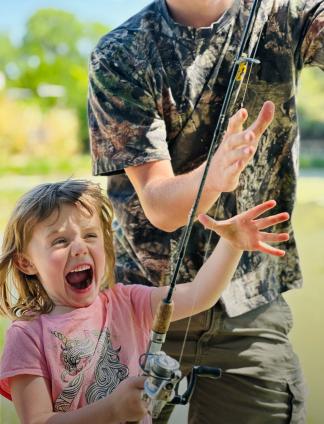
Photo Credit: Nature Niños
Nature Niños is a New Mexico organization dedicated to providing youth across the state with opportunities to connect with nature, build confidence, and foster a deep sense of environmental stewardship. They offer programming across a range of age groups, including their early childhood program, Tiny Trees, for children ages 4-8 years old. Working with over 120 children each year, Tiny Trees introduces early learners to the joys of nature-based exploration through sensory-rich and creative play, discovery, and environmental learning.
The organization's mission is to make outdoor education accessible, with a focus on developing social-emotional skills, environmental awareness, and respect for public lands.
Natural Start spoke with Nature Ninos' executive director, Sarah Candelaria, to learn more.
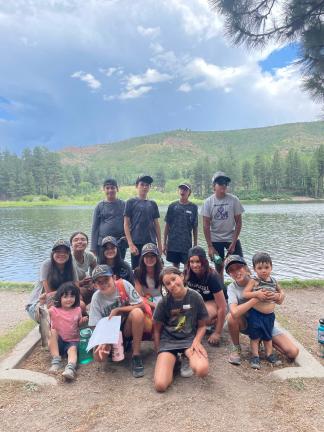
You describe Nature Niños as an entry point for youth and families who have "nature nerves." What are nature nerves, and how do you help people overcome them?
"Nature nerves" is a term coined by Nature Niños to describe the apprehension or unease individuals may feel about engaging with the outdoors, particularly when they lack prior exposure to natural environments, are unfamiliar with outdoor skills, or have concerns about safety and comfort. We address these barriers by creating welcoming, structured, and inclusive outdoor experiences. We teach practical outdoor skills such as hiking basics, fishing, and wildlife identification, and blend them with social-emotional learning activities, like journaling or group discussions, to gain confidence in exploring the natural world.
We also recognize that some families feel disconnected from outdoor spaces due to cultural or socioeconomic challenges. Nature Niños partners with schools in disadvantaged communities and community organizations to break down financial barriers and offer equitable access to outdoor learning. By combining hands-on learning, guided exploration, and consistent support, we help youth and families overcome "nature nerves" and foster lifelong connections to the outdoors.
Nature Niños partners with schools, educators, and community leaders to bring learning outdoors. Have these partnerships been successful, and would you recommend this approach to other organizations?
Absolutely, these partnerships have been transformative for both Nature Niños and the communities we serve. By working alongside schools, educators, and community leaders, we integrate outdoor learning into academic and social development, making it an accessible and impactful experience for youth.
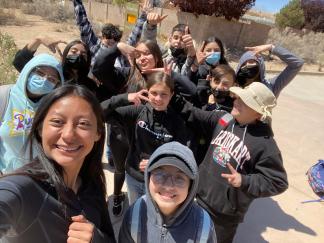
Community leaders play a critical role in our success as well. Collaborations with organizations like Nuestra Tierra Conservation Project and support from initiatives like the Outdoor Equity Fund allow us to deliver programming that prioritizes inclusivity and engagement.
This approach not only improves student outcomes but also strengthens community ties by promoting shared goals of environmental stewardship and education. We highly recommend this model to other organizations, as it multiplies impact by leveraging local expertise, creating shared ownership of the programs, and ensuring sustainability.
Environmental stewardship is central to Nature Niños mission. How is this concept implemented in the early childhood program, Tiny Trees?
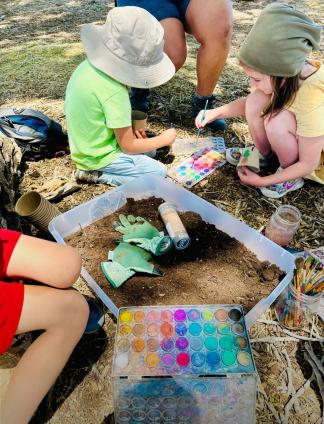
Children engage in hands-on activities like plant and animal identification, gardening, and understanding ecosystems, which teach foundational environmental concepts. Programs are intentionally structured to allow free exploration time, so children can observe and connect with their surroundings organically. This builds an intrinsic appreciation for nature, which is key to fostering long-term stewardship.
To make these concepts more relatable, Tiny Trees also incorporates storytelling, role-playing, and journaling. For example, children might "adopt" a tree or a section of a trail for the day, learning how to care for it and observe changes over time.Through partnerships, such as those with the Los Ranchos Agri-Nature Center, we also introduce concepts of sustainable agriculture and conservation practices in ways young learners can understand. These lessons are reinforced by involving families in outdoor experiences, ensuring that stewardship becomes a shared value that extends beyond the program.


